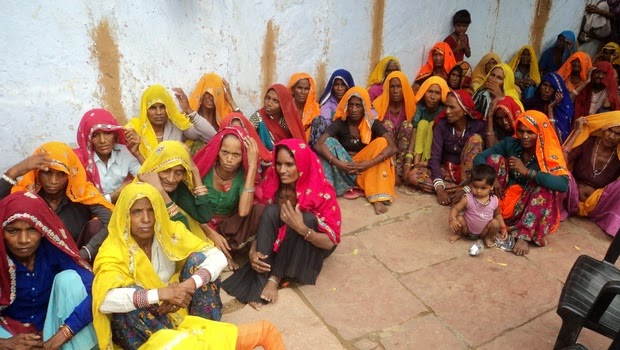 |
| Mehran Gadh, red sand stone building, Rajasthan. solankiartistry,com |
The beauty and appearance of the buildings are normally enhanced, by quality construction materials being used. If the construction materials are strong and have impressive color, the demand for them will never diminish. The
eye-catching red sandstones of various shades of Rajasthan are
increasingly being widely for exterior construction in many parts of India and mining of such red stones is going on in full scale. Rajasthan red sand stones have been around for more than several centuries and particularly during the Raj, they became increasingly popular. They are used in the public buildings along with other stones to impart impressive look.
The Moguls never failed to use the Rajasthan red stones and the famous red fort built by the Mogul king Akbar. The Rastrapathi Bhavan in Delhi by British architect Sir Edwin Lutyens and his associates are made of this kind of red
stones. These high quality stones are extensively mined from
Karauli-Dholpur and Bharatpur areas of Rajasthan to meet the
ever-increasing demands from various parts of India.
The
irony is these beautiful red stones are mute spectators of hard
working miners whose lives are are fraught with sadness, indignation
and pathos. General public hardly ever know that the above mining
belt accounts for the largest number of young widows in India, most of
them below 40 years of age. Reason : The deadly disease of silicosis has taken
away the lives of numerous young bred winners in the families -
men mostly in their 40s, leaving behind their young poor widows
who have to bear the brunt of their husband's medical treatment
expenses, etc.
Karauli
is one of the 19 districts in Rajasthan where thousands of mine
workers are battling with silicosis and other lung related
respiratory problems caused by inhaling powder-dust containing
crystalline silica during mining operations like blasting,
drilling, cutting blocks into slabs, etc. They don't take any
precautions as stipulated by the government, and consequently these
worker on the days of operations, inhale a large dosage of dust.
There is no help whatsoever from the government, because they work in the illegal
mines operated by stone mafias. The mining acts don't cover the
illegal workers. Further, Rajasthan has 32,000 mines where two
million people are employed and majority of them suffer from various
stages of silicosis and associated TB (tuberculosis). There are only seven Pneumoconiosis Board centers to diagnose silicosis and to
cater to the large number of patients. Hence, the workers are forced
to see private clinics where the medical treatment costs are
exorbitant, which they can't afford.
The
people, who work in the mines mostly belong to Bairwa and other
schedule caste communities, and they are the poorest among the poor.
If death of the bred winners in the families occurs at frequent intervals, more and more people are further pushed to the edge of
poverty leaving them out in despair, dejection and helplessness. More
than 70 men from 60 families have died in the last few years of
silicosis caused
by inhalation of dust containing free crystalline
silica. Though
there are government pension schemes for the employees of registered
mining companies their awareness about rehabilitation, pension etc is
very poor.
Rajasthan
government is seriously taking steps to take action against illegal
mining operators and to mitigate the problems of miners.
Thus, this active mining
belt in Rajasthan records the largest community of young widows in
India, perhaps in the world (?). Haunted by abject poverty and despair,
these widows have a bleak future and the government has to listen
to their grievances
 |
| Red stone building,Rajasthan. solasiartistry.com |
 |
| widows of mining workers', Rajasthan. newindianexpress.com |
 |
| Red sandstone slabs, Rajasthan, India. stonecontact.com |
and take steps in earnest to mitigate them to some extent.
Ref:









